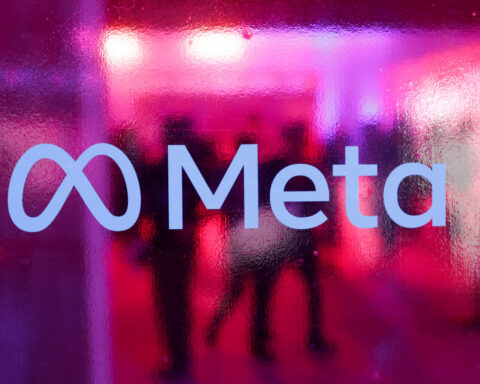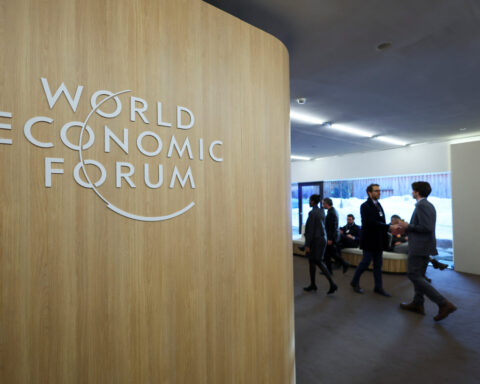By Promit Mukherjee and Ismail Shakil
OTTAWA (Reuters) -Canada's slower-than-expected rise in consumer prices in June has firmed up expectations that yet another rate cut by the Bank of Canada is coming next week, extending some more relief to home owners and indebted businesses.
The annual inflation rate cooled a tick more than expected to 2.7% in June and the BoC's closely tracked core inflation measures were also marginally down, data showed on Tuesday.
Analysts polled by Reuters had forecast the inflation rate would come down to 2.8% from 2.9% in May.
The inflation reading is the last critical data point before the central bank's interest rate announcement and Tuesday's print prompted analysts and economists to factor in with almost complete certainty another 25 basis point rate cut on July 24.
"The inflation data for June gave the Bank of Canada what it needed in order to cut interest rates at next week's meeting," Katherine Judge, senior economist at CIBC Capital Markets, wrote in a note.
Royce Mendes, head of macro strategy at Desjardins Group, said the latest data "build a strong case for continuing the rate cutting cycle without delay."
Financial markets advanced their bets for a rate cut at the central bank's July 24 rate announcement to almost 93% from 82% before the data was released.
Month-over-month, the consumer price index was down 0.1%, compared with a forecast for no change. This was the first deceleration in the monthly inflation rate since December, Statistics Canada data showed.
Tuesday's data showed that headline inflation was cooler than the BoC's 2.9% inflation forecast for the end of the first half of 2024.
CPI has stayed below 3% since the start of the year and has been in the target range of the central bank, which aims to keep inflation at the mid-point of its range.
Last month, the bank became the first central bank amongst the G7 nations to trim borrowing costs, cutting them by 25 basis points after holding it at a more than two-decade high for about a year.
Since then, lackluster GDP numbers for April and rising unemployment in June had been signs that the economy is under strain and more cuts were needed to prevent a recession.
Business bankruptcies have been rising, many auto loans have turned delinquent, and people are defaulting on credit card debts.
A survey of businesses by the BoC on Monday revealed that firms are not inclined to invest in expansion or machinery as they anticipate demand to stay subdued over the next year.
"Today's CPI report, taken with the weak Q2 Business Outlook Survey, the ongoing march higher in the jobless rate, and increased economic slack are expected to provide policymakers with enough confidence... to ease policy rates 25 bps to 4.5% on July 24," said Benjamin Reitzes, Managing Director, at BMO Capital Markets.
The Canadian dollar shed gains after the data with the loonie trading down 0.07% to 1.3691 against the U.S. dollar, or 73.04 U.S. cents.
Canada's main stock index opened higher by 0.26% to 22,810.07 points, boosted by rate cut hopes.
Yields on the government's two-year bonds were down 0.9 basis points to 3.792%.
The average of two of the Bank of Canada's preferred measures of core inflation - CPI-median and CPI-trim - eased slightly to 2.75% in June from 2.80% in May.
The deceleration in headline inflation was largely attributable to a slowdown in gasoline prices, which rose at an annual rate of 0.4% in June, down from 5.6% in May. Excluding gas prices, the CPI rose 2.8% on an annual basis, Statscan said.
An increase in prices for food purchased from stores as well as a smaller decline for cellular services in June offset some cooling in prices.
Excluding food and energy, prices rose 2.9% in June, the same as in May.
Service prices increased 4.8% annually in June, compared with a 4.6% rise in May, while goods inflation slowed to 0.3% from 1%.
(Reporting by Ismail Shakil and Promit Mukherjee; Editing by Chizu Nomiyama)

 Germany sees meat exports to EU continuing after foot-and-mouth case
Germany sees meat exports to EU continuing after foot-and-mouth case
 Parliament speaker to lead Taiwan delegation to Trump's inauguration
Parliament speaker to lead Taiwan delegation to Trump's inauguration
 German economy contracted 0.2% in 2024
German economy contracted 0.2% in 2024
 Nokia signs multi-year patent license agreement with Samsung
Nokia signs multi-year patent license agreement with Samsung
 Irish parties secure 'comfortable majority' for new government
Irish parties secure 'comfortable majority' for new government
 Bayern Munich signs US youngster Bajung Darboe from LAFC
Bayern Munich signs US youngster Bajung Darboe from LAFC
 Novak Djokovic breaks a tie with Roger Federer for the most Grand Slam matches in tennis history
Novak Djokovic breaks a tie with Roger Federer for the most Grand Slam matches in tennis history
 China's RedNote: what you need to know about the app TikTok users are flocking to
China's RedNote: what you need to know about the app TikTok users are flocking to








